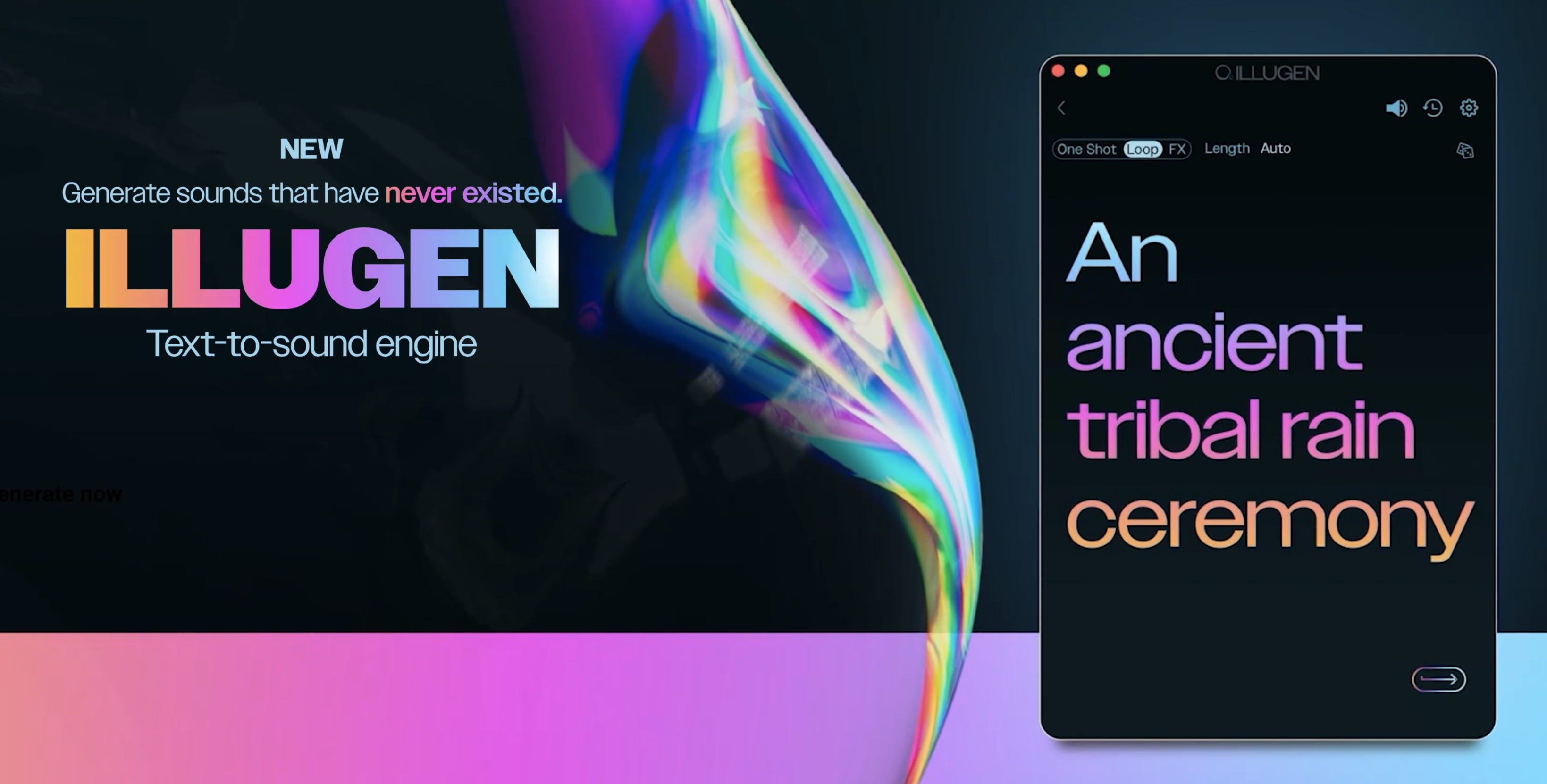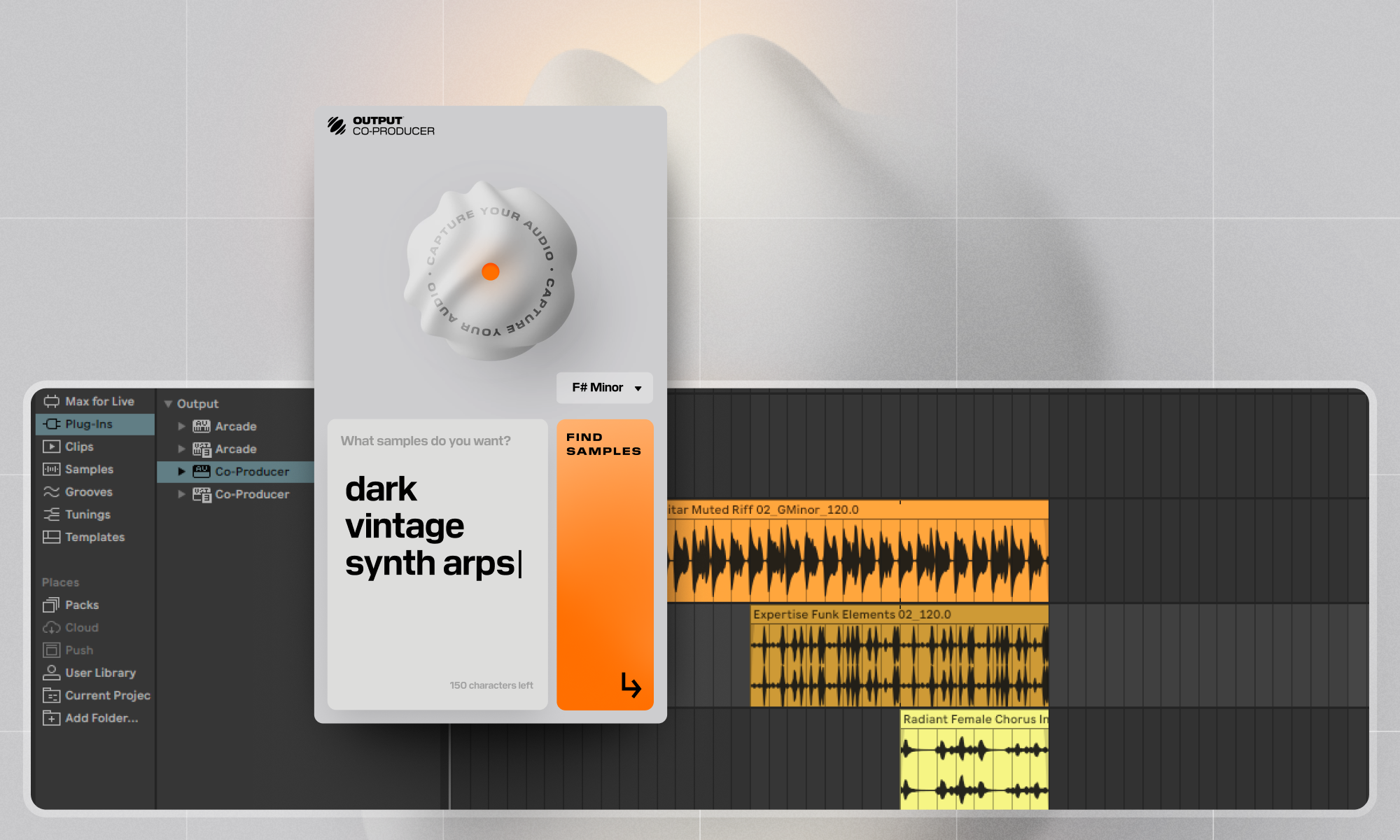Waves pivots from plugins to samples with subscription-based AI text-to-sound generator
Illugen is a desktop app that Waves says can "generate sounds that have never existed"

Waves has unveiled Illugen, a new AI-powered desktop app and text-to-sound engine that generates loops, one-shots and sound effects based on text prompts.
The company claims that Illugen can create "sounds that have never existed", inviting users to "describe a scene, mood, or crazy idea, and Illugen will convert it into sound". All you have to do is open up the app, enter a prompt, and Illugen will provide you with three samples, any of which can then be drag-and-dropped into your DAW.
Anything can be used as a prompt, but Waves suggests a formula that combines a mood, an instrument and an unexpected twist, focusing on vibes over specific instructions. Examples on the website include "haunted piano playing in an abandoned mansion", "strings that build tension as a hero faces the villain, and "a snail's journey scored with synths". (Gotta love that last one.)
Surprisingly, considering Waves' history with subscriptions, Illugen operates a credit-based, tiered subscription model
Though you're able to target a specific BPM for loop generation, Illugen doesn't support musical keys and scales, so you'll have to transpose its samples to fit with other elements in a track. It also only creates loops in a 4/4 time signature, and unlike many generative AI models, Illugen doesn't prevent you from asking for sounds in the style of a particular artist or track.
Illugen's 'Creativity Level' can be adjusted in its Settings tab, allowing you to choose between three levels - Tame, Wild and Wilder - that give you more or less predictable results. Sounds generated are 16-bit, 44.1kHz WAV files, and can be used in your own tracks without permission, but not redistributed or sold.
Surprisingly, considering Waves' history with subscriptions, Illugen operates a credit-based, tiered subscription model and no perpetual license is available. Each sample generated will cost you a credit: one-shots use one, loops use two credits and sound effects can require up to three. You can test out Illugen with 30 free trial credits on Waves' website.
The Basic plan provides 150 credits for $7.99/month, Premium offers 300 for $12.99/month and Pro delivers 600 credits for $19.99/month, and first-time subscribers will receive a pack of bonus welcome credits. Unused credits roll over to the next month, and will remain in your account for 12 months should you unsubscribe.
Want all the hottest music and gear news, reviews, deals, features and more, direct to your inbox? Sign up here.
Generative AI has developed dramatically in recent years, and music generation platforms such as Suno and Udio, which utilize AI models that were trained on copyrighted music without authorization, have prompted widespread criticism (and legal action) from across the music industry.
Reactions to Illugen's launch have been mixed. Many have criticized Waves' decision to adopt a subscription model, while others have questioned both the ethics and quality of generative AI models.
Waves hasn't provided much detail on how Illugen was developed, but a rather vague statement on its website says that the app's model was trained exclusively on "documented, legally owned" material and insists that ethical AI development is a top priority for the company.
"We are committed to respecting creators’ rights and ensuring our training sources are properly licensed and documented," the statement says. We've contacted Waves for clarification and have yet to receive a response.
While the technology behind Illugen isn't anything we haven't seen before, Waves is one of the first major players in the music tech world to release a product that utilizes generative AI to create samples from scratch for music production.
Back in 2023, Output launched Pack Generator, an experimental free tool that created unique sample packs by "curating, combining and resynthesizing" samples from the company's library. However, since then, both Output and Splice have released products that use AI to help music-makers search and discover human-made samples, signalling a lack of interest in AI-based sample generation.
"I do think that generative AI can be used to build better tools," Splice CEO Kakul Srivastava told us late last year. "We spend a lot of time with artists, learning about how they would want to use generative AI in their creative process. They've got some really powerful ideas. Are we working on it? Absolutely, absolutely, we're working on it. We're not going to use it to ‘generate’ a library of samples. We're going to use it to build better tools."

I'm MusicRadar's Tech Editor, working across everything from product news and gear-focused features to artist interviews and tech tutorials. I love electronic music and I'm perpetually fascinated by the tools we use to make it.
You must confirm your public display name before commenting
Please logout and then login again, you will then be prompted to enter your display name.


